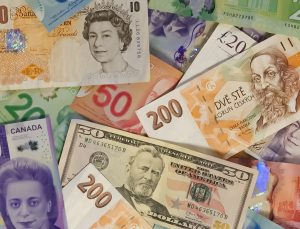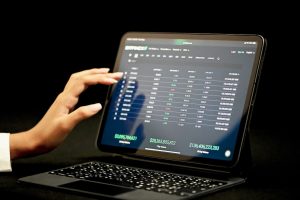Investment banks are among the largest and most influential players in the foreign exchange (forex) market. These institutions have a unique role in global financial markets, acting as intermediaries between large institutional clients, such as corporations, hedge funds, and sovereign wealth funds, and the broader forex market. Investment banks have extensive expertise in forex trading, including advanced trading strategies, risk management techniques, and market analysis tools. In this article, we will explore how investment banks trade forex and the factors that influence their trading decisions.
Understanding the Forex Market
Before we delve into the specifics of investment bank forex trading, it is essential to have a basic understanding of the forex market. The forex market is a decentralized global marketplace where currencies are traded. It is the largest financial market in the world, with an average daily trading volume of over $6.6 trillion. The forex market operates 24 hours a day, five days a week, with trading centers located in major financial hubs worldwide, including New York, London, Tokyo, and Sydney.
Forex trading involves buying and selling currency pairs, with the goal of making a profit from the fluctuations in exchange rates. Investment banks trade forex on behalf of their clients, executing trades based on their clients’ objectives and risk tolerance. Investment banks also trade forex for their own accounts, seeking to maximize profits from market movements.
Trading Strategies
Investment banks use a variety of trading strategies in the forex market, depending on their clients’ objectives and market conditions. Some of the most common forex trading strategies used by investment banks include:
1. Technical Analysis: Technical analysis involves using charts and other technical indicators to identify patterns and trends in the forex market. Investment banks use technical analysis to identify potential trading opportunities and to determine entry and exit points for trades.
2. Fundamental Analysis: Fundamental analysis involves analyzing economic and political data to forecast exchange rate movements. Investment banks use fundamental analysis to identify long-term trends in the forex market and to make informed trading decisions.
3. Algorithmic Trading: Algorithmic trading uses computer programs to execute trades based on predefined rules and algorithms. Investment banks use algorithmic trading to execute trades quickly and efficiently, taking advantage of market fluctuations.
Risk Management
Risk management is a critical part of forex trading for investment banks. These institutions are responsible for managing the risks associated with forex trading on behalf of their clients and their own accounts. Some of the most common risk management techniques used by investment banks in forex trading include:
1. Stop Loss Orders: Stop loss orders are used to limit losses on a trade by automatically closing the position if the price reaches a predetermined level.
2. Hedging: Hedging involves taking offsetting positions in the forex market to reduce overall risk. Investment banks use hedging to protect against losses from adverse market movements.
3. Position Sizing: Position sizing involves determining the appropriate size of a trade based on risk tolerance and market conditions. Investment banks use position sizing to manage risk and maximize profits.
Market Analysis
Investment banks use a range of market analysis tools to make informed trading decisions in the forex market. These tools include:
1. Economic Data: Investment banks analyze economic data, such as GDP, inflation, and employment reports, to make informed trading decisions.
2. News and Events: Investment banks monitor news and events, such as central bank announcements and political developments, to identify potential trading opportunities and market risks.
3. Technical Indicators: Investment banks use technical indicators, such as moving averages and oscillators, to identify patterns and trends in the forex market.
Conclusion
Investment banks are major players in the forex market, using advanced trading strategies, risk management techniques, and market analysis tools to make informed trading decisions on behalf of their clients and their own accounts. Forex trading is a complex and challenging activity, requiring extensive expertise and experience. Investment banks are uniquely positioned to navigate the forex market, leveraging their extensive resources and expertise to maximize profits and manage risk.






